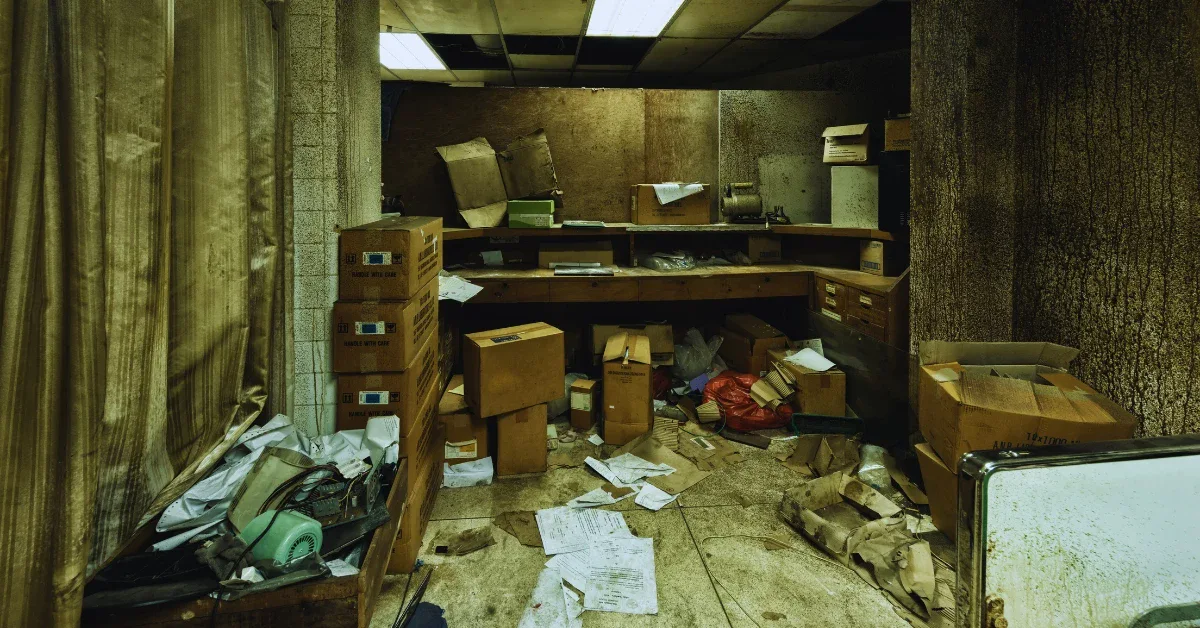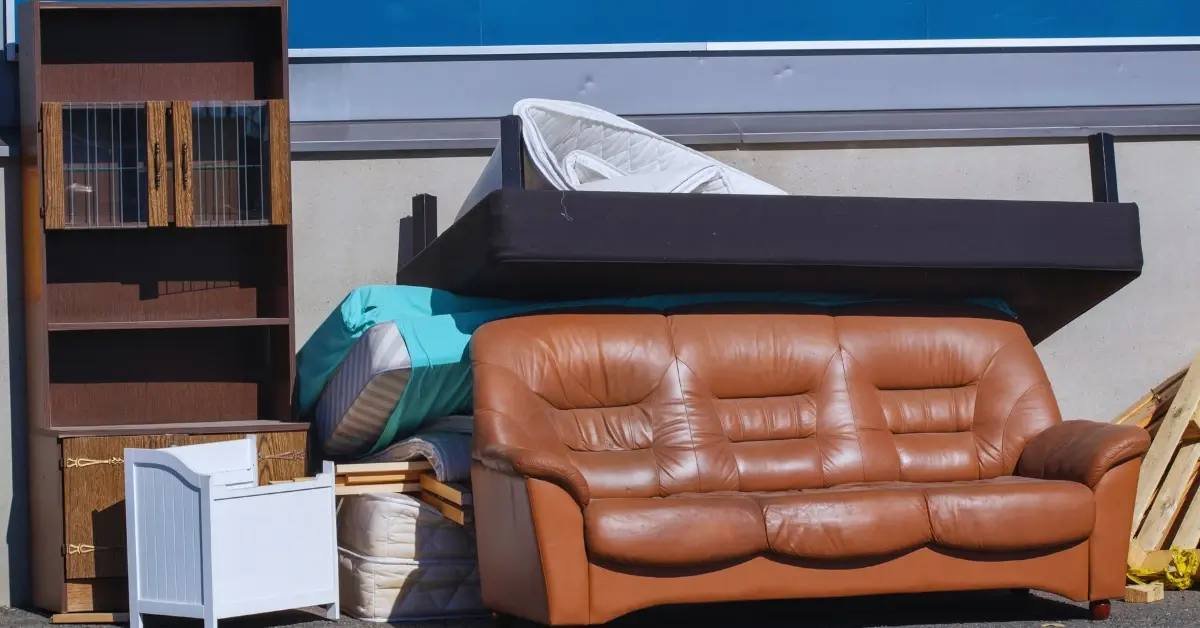What to Do When a Tenant Leaves Belongings Behind in South Africa?
If a tenant leaves property behind in south africa, landlords should follow the stipulations set out in the rental housing act. Firstly, the landlord must notify the tenant in writing that their possessions are still in the unit and request for them to be collected.
Secondly, if the tenant fails to collect their property within a reasonable timeframe, the landlord must store the items and provide written notification of where they are being stored.
Lastly, if the tenant fails to collect their belongings within six months, the landlord may sell the items to recover any outstanding debt owed by the tenant.

Understanding The Legalities
When a tenant leaves behind belongings in a rental property, it can be a frustrating and time-consuming process for landlords.

However, it’s essential to understand the legalities surrounding this issue to avoid any potential legal disputes. Here are the key points to consider:
The Legal Responsibility Of A Landlord
As a landlord, you have legal obligations when it comes to managing abandoned property. You need to take reasonable steps to protect and store the tenant’s belongings.
Here’s what you need to do:
- Secure the property and make sure that the tenant’s belongings are protected from theft, weather, and damage.
- Store the belongings safely and keep them in a locked storage facility to prevent unauthorized access.
- Try to contact the tenant and notify them via email, phone, or written letter, informing them that they have left belongings behind in the rental property.
- If the tenant doesn’t respond or collect their belongings, you can sell or dispose of them, but you must follow the legal procedure.
The Tenant’S Obligations Under The South African Law
When a tenant leaves behind belongings in a rental property, they have specific obligations under south african law. Here’s what they need to do:
- Notify the landlord and provide them with the details of the abandoned property.
- Collect the belongings and remove them from the rental property within a reasonable period, usually 14 days.
- Pay for any costs associated with storing and protecting their belongings.
The Legal Procedure For Managing Abandoned Property
The rental property landlord must follow the legal procedure when managing abandoned property. Here are the steps involved:
- The landlord must issue a written notice to the tenant informing them that they have left behind their belongings in the rental property.
- The notice must describe the abandoned property and provide details of where it’s stored.
- If the tenant doesn’t respond or collect their belongings within a reasonable period, usually 30 days, the landlord can sell or dispose of the abandoned property.
- The landlord must use the proceeds from the sale to cover any rent or damages owed by the tenant. If there is any money left over, the landlord must return it to the tenant.
The Relevant Legislation To Consider In This Situation
Several pieces of south african legislation cover the issue of abandoned property in rental properties. Here’s what landlords need to consider:
The rental housing act of 1999
This act establishes the rights and obligations of landlords and tenants in south africa and provides a framework for the management of rental properties.
The consumer protection act of 2008
This act provides guidance on how landlords must handle tenants’ personal belongings, including abandoned property.
The national environmental management act of 1998
This act outlines the steps landlords must take to dispose of abandoned property safely and correctly.
Handling Abandoned Belongings

Steps To Take When You Discover Abandoned Personal Property
Discovering abandoned personal property left behind by a tenant can be a stressful experience. It’s essential to handle the situation with care and caution.
Here are the first steps to take when you discover abandoned personal property.
Take inventory
The first thing you should do is document the items the tenant left behind. Inspect the property and write down everything you see. Taking photos of the items can also help.
Check the lease agreement
Make sure you review the lease agreement to see if there are any clauses that outline how to handle abandoned property.
Contact the tenant
Try to contact the tenant via phone, email, or letter. Let them know that they left personal property behind and ask them to collect it.
The Importance Of Documenting The Abandoned Belongings
As a landlord, it’s essential to document the abandoned items left behind by a tenant.
Documentation can help you protect yourself legally and ensure that you handle the situation correctly.
- Documenting the property can help you show proof of your attempts to contact the tenant to collect their belongings or dispute damages.
- Taking pictures of the items can help prove their condition if there is damage or if items are missing.
Procedures For Notifying The Tenant About The Abandoned Items
It’s crucial to take the correct steps when notifying a tenant about abandoned property.
Following the right procedures will help ensure that you handle the situation appropriately.
Send written notification
You should send a written notification to the tenant stating that they abandoned personal property and give them a specific date by which they must collect their belongings.
Include specifics
Include in the letter a detailed list of the items left behind, their condition, and a contact number for the tenant to reach you.
The Options For Disposing Of The Items
If you’ve done everything in your power to contact the tenant and they still haven’t collected their belongings, you might need to dispose of them.
Here are some options available to you as a landlord.
- Sell the items: You can sell the items, but you must follow specific procedures for doing so according to south african law.
- Donate the items: If the property is in good condition, you can consider donating items to charity.
- Throw away the items: If the property is unsalvageable, the last option you have is to throw the items away.
How To Safeguard Yourself From Potential Legal Action
It’s essential to take steps to protect yourself from any legal action taken by the tenant regarding abandoned belongings.
Here are some measures you can take to prevent legal issues.
- Follow legal procedures: To avoid legal action, ensure that you follow the correct procedures for handling abandoned property.
- Keep proper documentation: Keeping proper records of the written notification to the tenant, the inventory of items, and their condition can help protect you from legal action.
- Be transparent: Be open and transparent with tenants and document everything as proof.
FAQs
What Should A Landlord Do With Abandoned Items?
The landlord should carefully document and store the items for 30 days before disposing of them.
Can A Landlord Sell Abandoned Property Left By The Tenant?
If the items left behind are valuable enough to cover any unpaid rent or damages, the landlord may sell them.
What Are The Legal Responsibilities Of A Landlord?
The landlord should follow the laws regarding abandoned property and stay in communication with the tenant.
What Can A Tenant Do If Their Belongings Are Disposed Of Improperly?
The tenant may be able to sue the landlord for damages if their property was not stored or disposed of according to the law.
Conclusion
To understand the tricky territory of tenant possessions left behind, you must adhere to South Africa’s legal framework.
Reach out to the tenant, document everything meticulously, and follow the correct disposal procedure.
It’s about balancing empathy with protocol and safeguarding both parties’ rights.
Reference
https://www.myggsa.co.za/the-rights-of-tenants-in-south-africa-when-it-comes-to-their-belongings/
I live in a 2 bedroom apartment in San Diego, CA that shares the cost of utilities with the other tenants of the complex. How much we pay is determined by the number of persons on each lease. Most of the apartments are 2 bedroom…there are a few 1 bedroom apartments.
One of the apartments had upwards of 10 adult males living there.
I brought this to the attention of the resident manager and expressed my concern about having to pay for other people’s utilities and wanted to make sure all persons living in the complex were on a lease. I was told it was none
of my business.
I believe I have a right to have an accounting of how the utilities are charged.
What can I do to ensure I am paying only my share of utilities?